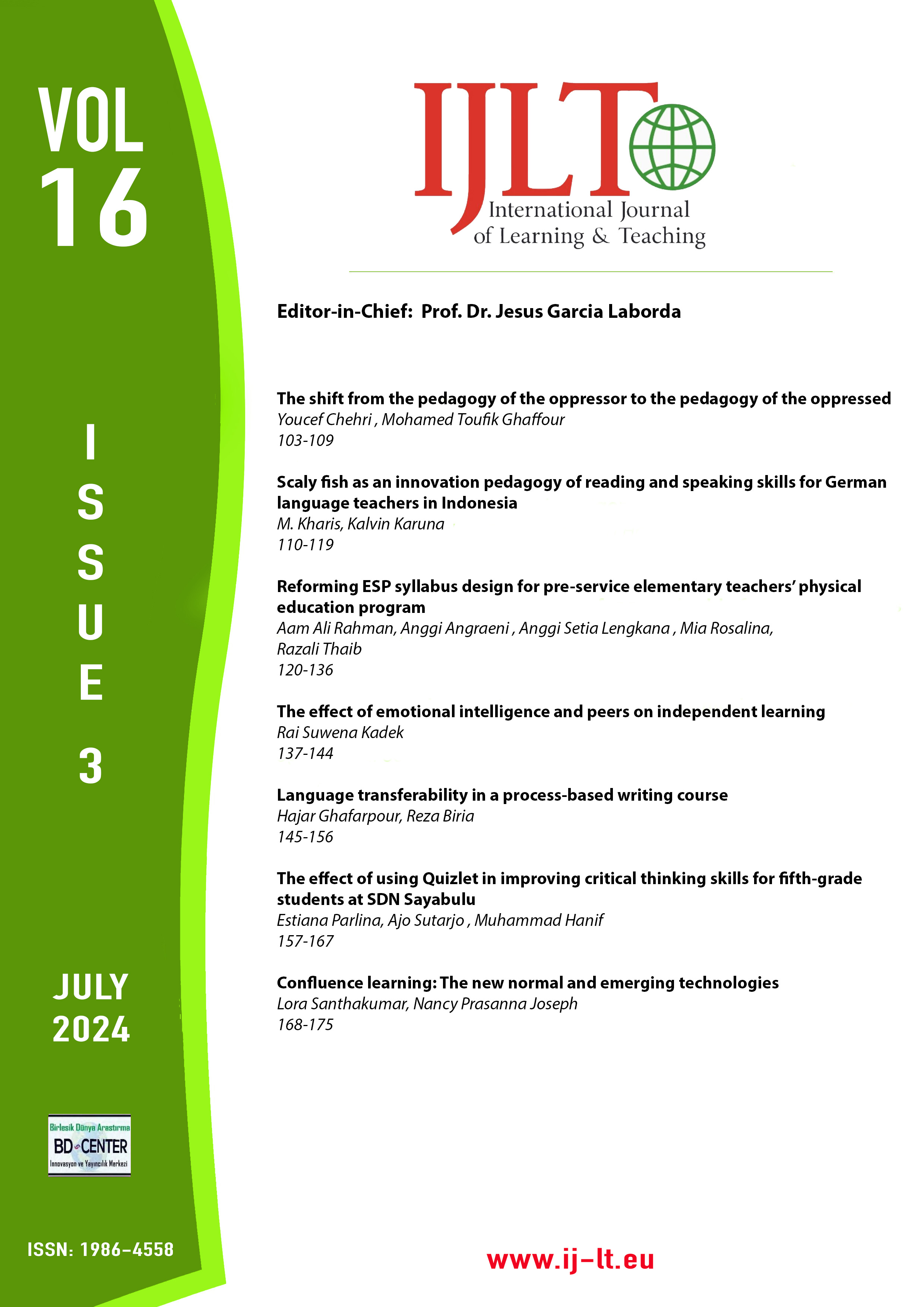Scaly fish as an innovation pedagogy of reading and speaking skills for German language teachers in Indonesia
Main Article Content
Abstract
The focus of this activity is the application of the GOPP method to reading and speaking skills for German language teachers. Observation on the German language skills has been made of 40 respondents of German language teachers in Malang, East Java, Indonesia. The result indicates that teachers need to improve their language skills, especially reading skills and speaking skills in German. One of the methods for achieving this goal is the GOPP method (Goal-oriented project planning), which is an innovative pedagogy method of goal-oriented activity. This method has six phases of implementation: problem analysis, goal analysis, participants and potential analysis, project planning overview, action plan, and results analysis and documentation. In the action plan phase, the Schuppenfisch-technic is used. The results of the questionnaire show that this technique helps teachers in reading and writing skills. They enjoy the technic and they are self-confident when they are speaking in German. In addition, there is a plan to apply this method in the classrooms at their schools.
Keywords: GOPP-Method; reading; scaly fish; Schuppenfisch-technic; speaking skills.
Downloads
Article Details

This work is licensed under a Creative Commons Attribution-NonCommercial-NoDerivatives 4.0 International License.
Authors who publish with this journal agree to the following terms:
- Authors retain copyright and grant the journal right of first publication with the work simultaneously licensed under a Creative Commons Attribution License that allows others to share the work with an acknowledgement of the work's authorship and initial publication in this journal.
- Authors are able to enter into separate, additional contractual arrangements for the non-exclusive distribution of the journal's published version of the work (e.g., post it to an institutional repository or publish it in a book), with an acknowledgement of its initial publication in this journal.
- Authors are permitted and encouraged to post their work online (e.g., in institutional repositories or on their website) prior to and during the submission process, as it can lead to productive exchanges, as well as earlier and greater citation of published work (SeeThe Effect of Open Access).
